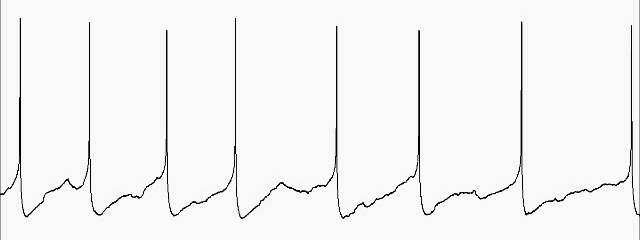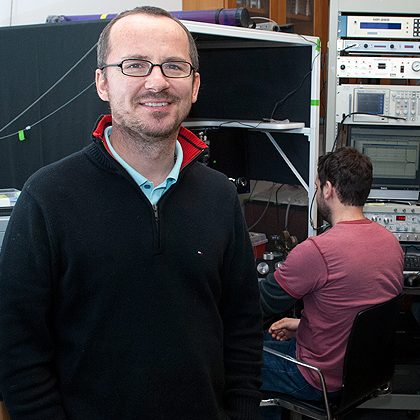About Us
My research is centered understanding the electrophysiological characteristics of mammalian neurons in brainstem regions associated with cardiorespiratory control. We are currently using a combination of slice-patch electrophysiology, fluorescent imaging and genetic approaches to identify ion channels that regulate activity and neurotransmitter modulation of neurons that provide the CO2/H+-dependent drive to breathe (i.e., respiratory chemoreceptors). For example, we have shown that KCNQ channels regulate basal activity of chemosensitive neurons in the retrotrapezoid nucleus (RTN) and serve as a common substrate for various wake-on neurotransmitters. Based on this we hypothesize that epilepsy-associated KCNQ mutations will disrupt respiratory control and contribute to sudden unexpected death in epilepsy. We are also interested in understanding how astrocytes contribute to the drive to breathe. For example, we have shown that RTN astrocytes sense CO2/H+ by inhibition of Kir4.1 channels and release ATP to directly stimulate chemosensitive RTN neurons and respiratory output. We also hypothesize that CO2/H+-evoked ATP release from RTN astrocytes provides specialized control of vascular tone by preventing CO2/H+-induced vasodilation, thus indirectly contributing to respiratory drive by maintaining tissue CO2/H+ and chemoreceptor activity. We are currently exploring the roles of Kir4.1 channels and purinergic signaling in disordered breathing associated with epilepsy, Rett syndrome and ischemic stroke.

Full Publication Links: PubMed
Contact Us
| E-mail: | daniel.mulkey@uconn.edu |
|---|---|
| Address: | Department of Physiology and Neurobiology Pharmacy Building, Room 216 University of Connecticut CT 06269-9011 |


